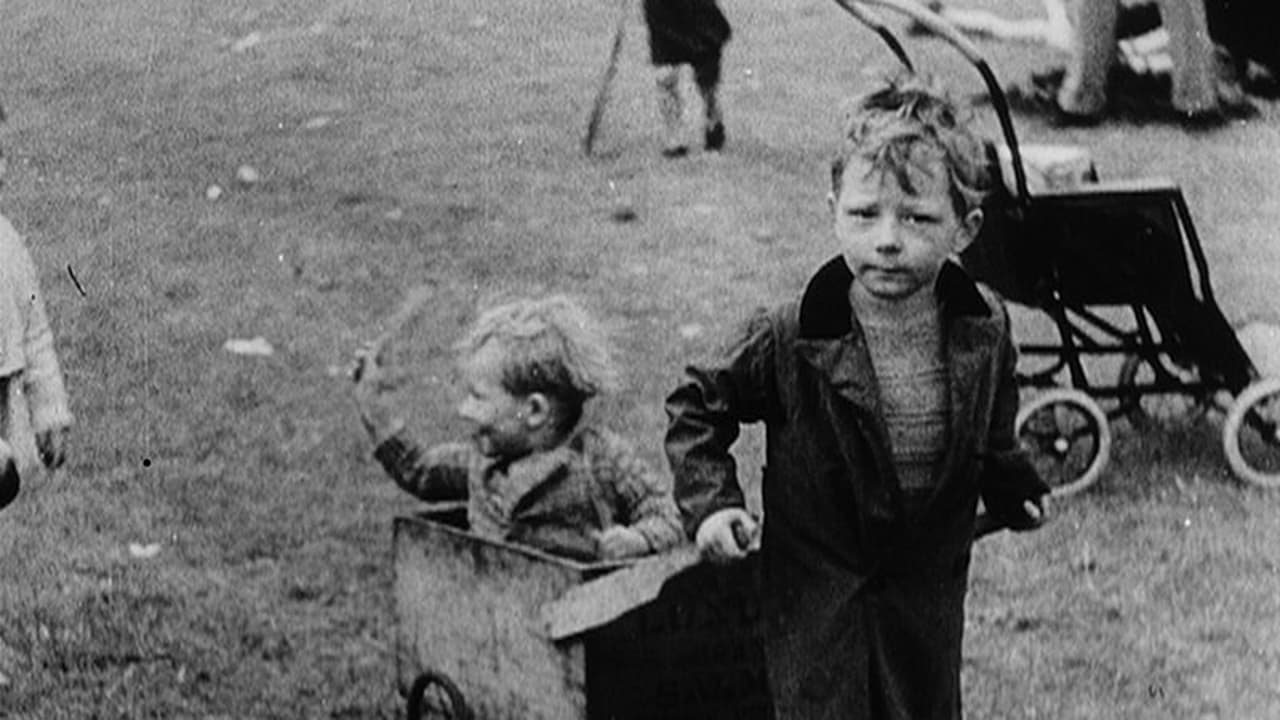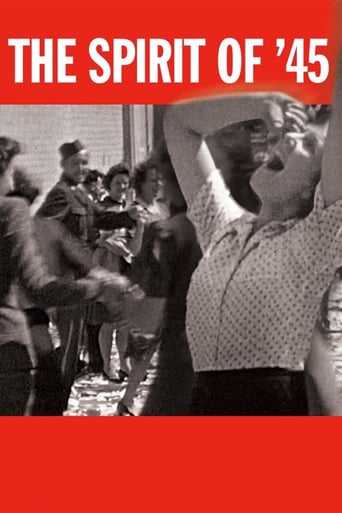JinRoz
For all the hype it got I was expecting a lot more!
Justin Easton
There are moments in this movie where the great movie it could've been peek out... They're fleeting, here, but they're worth savoring, and they happen often enough to make it worth your while.
Calum Hutton
It's a good bad... and worth a popcorn matinée. While it's easy to lament what could have been...
Billy Ollie
Through painfully honest and emotional moments, the movie becomes irresistibly relatable
stensson
Why did Churchill lose the elections of 1945. Were people simply ungrateful? According to Ken Loach, there were two main reasons. People remembered the misery after WW1 and they had realized that if the state was able to organize the war victory, it should also be able to win victory in peace. So it came during Clement Attlee; nationalization of health care, of electricity, of the railways, of the coal mines. And at the same time Britain changed into a welfare state.It's a very effective documentary, but two questions remain unanswered. How was it all financed and why did Churchill come back in 1951? Anyway, it's refreshing to watch how politics once was in charge.
antoniotierno
"The Spirit of '45" reminds us of the air of progress occurring in British politics immediately after World War II. It takes back to the founding of welfare state and the nationalization of the health service, transport, energy and other areas of public life. The faces we see at the beginning of the film of young Britons celebrating in the fountains at Trafalgar Square symbolize the hope of a nation. But Loach is also worried about the spirit of modern Britain. The second part ponders a different mood than the one of the 1940s: Thatcherism and the more recent failures of organized labor to live up to its founding principles. On the whole this is a tender and humane film, a compelling mix of interviews, with archive footage. The film works all at once as a lament, a celebration and a wake- up call to modern politicians, it's only a bit boring.
davideo-2
STAR RATING: ***** Saturday Night **** Friday Night *** Friday Morning ** Sunday Night * Monday MorningKen Loach has quite a backlog of work as a performance film maker, but his latest work, laying his unashamed socialist leanings firmly on the line, is presented in a documentary format. Loach thrusts us back in time to the immediate post war years, where with a country in ruins and millions sick and injured, there was no shortage of work and so the people had the power, coming together to re-build the country and form one huge powerful united front that let them decide their own fate, all under the thrust of a powerful Labour movement. The real main objective of the movement was not to go back to the appalling poverty of before the war, which nobody noticed and was just accepted by those who lived in it. Flash forward twenty five years or so, to the arrival of Thatcher.The main trouble, when politics is presented as art, is that you are naturally going to spur on and impress those who agree with you and form the most spiteful critics out of those who think you don't know what you're talking about. Like the most high horsed (but probably best) Michael Moore offering, Ken Loach here bombards us with a presentation of faces, talking heads, if you will, of a mostly much older generation who vividly bring the original socialist movement back to life, and try to paint a portrait of the sort of things that originally spurned it on. Reminding me of Moore's work a little, as it does, it's all naturally quite one sided and could even be seen as somewhat self indulgent/important, but where Loach gets it right is by managing to make the film's argument so persuasive anyway, genuinely managing to craft a scene where the poor/lower classes generally had no voice and by realizing their combined power, improved things for themselves and their families, only to have it all snatched back from them many years later.It's obvious, and really not very subtle, the way Loach, by filming the whole thing in black and white, is aiming for an art house vibe, but it backfires, resulting in a drearier presentation, a natural result of something with no colour and light. It might have worked better if he'd interspersed the happier times with some colour and flavour, and kept the dull grey more for the beginning and end. But that's not to say it completely robs the film of any genuine artistic integrity, and it never feels pretentious in any way. It's just the work of a proud and accomplished director, maybe wearing his heart on his sleeve a little, maybe not being as subtle as he could be, but presenting something made with such insight and, well, spirit you can't help but be impressed anyway. ****
cinematic_aficionado
In his varied and multi angled study Ken Loach takes us on a journey back in time laying bare the most fair and socially way of running a country.Despite the devastation caused by the 6 year World War II, Britain looked back and realised that in the pre-War era although it had the biggest ever empire, the levels of poverty and deprivation were embarrassing.So, following the end of the War, the country followed ultra socialist policies that improved the quality of life for everyone very dramatically following which the documentary follows the changes in attitudes towards social friendly policies and how they impacted the population indicating how the drive towards ever higher profits is eroding the social fabric of this nation.A contemplating feast and a nostalgic journey.

